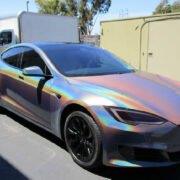In recent years, the automotive industry has witnessed a significant shift towards sustainable practices, with electric vehicles (EVs) emerging as the vanguard of this movement. As concerns about climate change and environmental degradation mount, more drivers are seeking eco-friendly alternatives to traditional gasoline-powered cars. In this blog post, we delve into the technology behind electric cars, their environmental benefits, and the future of sustainable driving.
The Rise of Electric Cars
Electric cars, once a niche market segment, have rapidly gained traction in the mainstream automotive industry. Advancements in battery technology, coupled with growing environmental awareness, have propelled the popularity of EVs. Manufacturers like Tesla, Nissan, and Chevrolet have led the charge in producing affordable and accessible electric vehicles, catering to a diverse range of consumers.
One of the key advantages of electric cars is their minimal environmental impact compared to internal combustion engine vehicles. By eliminating tailpipe emissions, EVs help reduce air pollution and greenhouse gas emissions, making them a crucial component of efforts to combat climate change.
The Technology Behind Electric Cars
At the heart of every electric car lies a rechargeable battery pack that powers an electric motor. These battery packs store electricity, which is used to propel the vehicle. Lithium-ion batteries are the most commonly used type of battery in electric cars due to their high energy density and relatively lightweight nature.
Charging infrastructure is another crucial aspect of electric vehicle technology. With the proliferation of public charging stations and home charging solutions, EV owners can conveniently recharge their vehicles at their convenience. Additionally, advancements in fast-charging technology have significantly reduced charging times, making electric cars more practical for everyday use.
Environmental Benefits of Electric Cars
The environmental benefits of electric cars extend beyond reducing greenhouse gas emissions. EVs also help minimize noise pollution, as electric motors operate much quieter than traditional internal combustion engines. This is particularly advantageous in urban areas, where noise pollution can have detrimental effects on public health and quality of life.
Furthermore, electric cars have the potential to revolutionize the automotive industry’s reliance on fossil fuels. By harnessing renewable energy sources such as solar and wind power to charge electric vehicles, we can further reduce our dependence on finite and environmentally harmful resources.
The Future of Sustainable Driving
As electric cars continue to gain momentum, the future of sustainable driving looks promising. Innovations in battery technology, such as solid-state batteries and graphene-based materials, hold the potential to further improve the performance and range of electric vehicles.
Moreover, advancements in autonomous driving technology are poised to transform the way we commute and travel. Electric autonomous vehicles promise to make transportation safer, more efficient, and environmentally friendly. Imagine a future where fleets of self-driving electric cars seamlessly navigate city streets, reducing traffic congestion and emissions.
MG4 Review: A Glimpse into the Future
MG4 Review: one notable player in the electric car market is the MG4, a sleek and stylish electric vehicle that embodies the future of sustainable mobility. With its cutting-edge design and impressive performance, the MG4 offers a glimpse into what the future of driving may look like.
The MG4 boasts a spacious interior, advanced infotainment system, and long-range capabilities, making it a compelling choice for eco-conscious consumers. Its zero-emission drivetrain ensures minimal environmental impact, aligning with the growing demand for sustainable transportation solutions.
Atto Cars: Pioneering Sustainable Mobility
In addition to established automakers, startups like Atto Cars are pushing the boundaries of sustainable mobility. Atto Cars specializes in compact electric vehicles designed for urban environments, offering an eco-friendly alternative to traditional city cars.
With their compact size and agile handling, Atto Cars are well-suited for navigating crowded city streets and tight parking spaces. Their electric drivetrains deliver smooth acceleration and silent operation, making for a more pleasant driving experience.
Conclusion
Electric cars represent a paradigm shift in the automotive industry, offering a cleaner, greener, and more sustainable alternative to traditional gasoline-powered vehicles. With ongoing advancements in technology and a growing commitment to environmental stewardship, the future of sustainable driving looks brighter than ever.
As consumers increasingly prioritize eco-friendly transportation options, electric cars are poised to become the norm rather than the exception. With vehicles like the MG4 and initiatives from innovative startups like Atto Cars leading the way, the transition to electric mobility is well underway. By embracing electric cars, we can pave the way for a cleaner and more sustainable future for generations to come. The electrification of the automotive industry represents not just a shift in technology, but a fundamental reimagining of transportation itself. As we embrace electric cars and continue to innovate towards a greener future, we take a significant step towards mitigating climate change and creating a more sustainable world for all.












